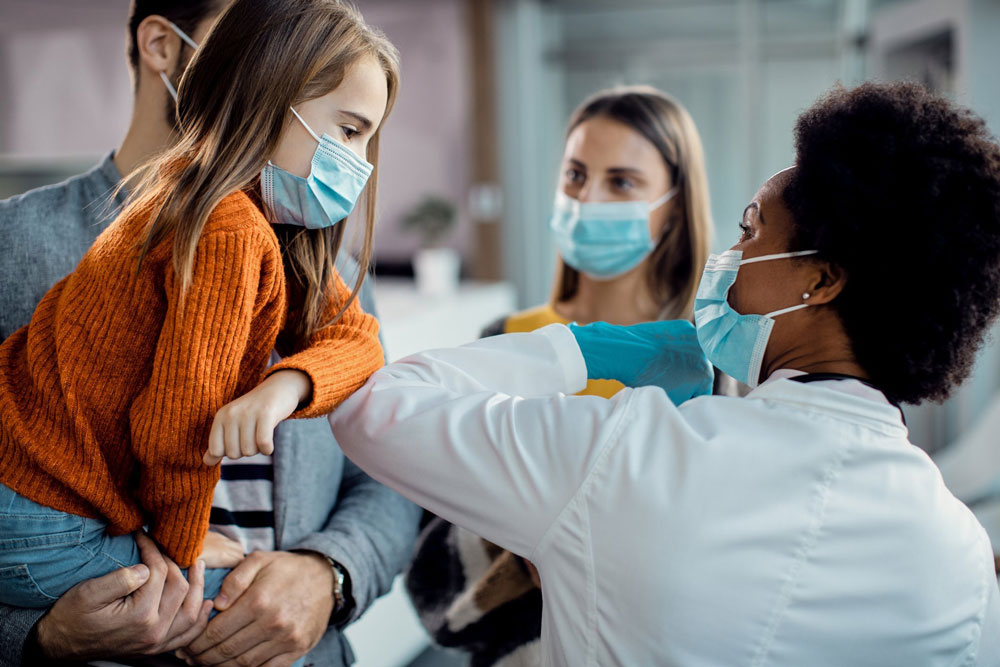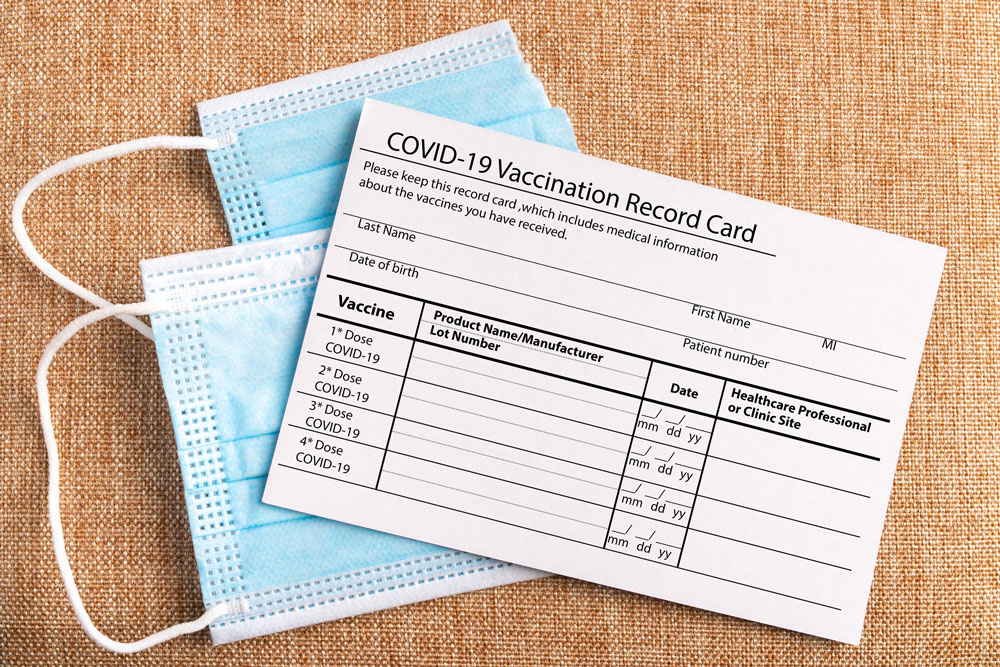COVID-19 Update: Vaccines and Children
Nov. 9, 2021
Earlier this month, the U.S. Food and Drug Administration approved the first COVID-19 vaccine for children ages 5 – 11. This gives about 430,000 South Carolinians access to the vaccines.
BlueCross BlueShield of South Carolina’s Dr. Matt Bartels, chief medical officer and a pediatrician, gives an update on the state of the coronavirus pandemic and answers some questions parents may have about the vaccine.
What is going on now with the pandemic?
The pandemic continues to march on. The declining case counts we are seeing currently are encouraging, but that doesn't mean COVID-19 is completely subsiding. In several areas of the world, case counts continue to rise, some at levels even higher than those at the beginning of the pandemic. There’s not enough population immunity. Variants continue to develop or reemerge. Those factors pose the greatest unknowns, making it a challenge to predict when there will be another surge in our country.
What do experts think is most likely to happen next with the pandemic?
Most experts agree the pandemic is not over. They expect outbreaks with continued surges around the world. We need to be aware of significant health disparities around the globe especially affecting access to vaccines. Health care is not the same everywhere. Because of that, the ongoing spread of COVID-19 is certainly going to continue even within the United States. The virus will continue to spread especially through unvaccinated people and those who are not immune.
How does it look in South Carolina?
Current data is positive in terms of declining case counts and hospitalizations. This doesn’t mean we are out of the woods. We don’t know what the next variant is going to look like. With continued spread, new mutations are likely to develop. Population immunity is critical to ending the pandemic.

Why is it important for children ages 5 – 11 to have access to the COVID-19 vaccine?
Children are part of our communities. They can become infected or carry the COVID-19 virus, contributing to ongoing spread and the likelihood of variants developing. It’s fortunate that children are not as severely affected by acute infection. But there are many instances of admissions to hospitals — including intensive care units — of children and adolescents. The risk to children from COVID-19 can be severe in certain instances. The overall risk to children is much less than it is to the elderly and people with chronic conditions in terms of disease severity, but the risk is not zero.
Children can easily become virus spreaders and cause illness in more people who are more vulnerable. It can be easy to focus only on the individual. With this virus, we also should consider the risk to our families and others in the community.
Overall, why are childhood vaccines important?
We have talked about this before. In the last 100 years, there have been two advances that have affected the health of the population more than any other medical developments: clean water and vaccinations. Despite the numerous things happening in health care, those two improvements have saved more lives than all other interventions. Vaccines have saved millions of lives and prevented numerous outbreaks of disease. Vaccines are critical for protecting both the individual and the population.
What should parents consider when deciding to vaccinate their children against COVID-19?
If faced with the choice to vaccinate or take the chance of your child becoming infected, I would always encourage parents to choose vaccination. Vaccines are currently safer than ever.
One challenge is significant misinformation in the public realm. People should always look at the facts. Find information from a reputable source, such as the Centers for Disease Control and Prevention and the South Carolina Department of Health and Environmental Control. Talk with a trusted medical adviser, such as your child’s pediatrician.
If more than half of the population in South Carolina is vaccinated, why do children need to be vaccinated?
More than half is not enough to declare population immunity. Until children are vaccinated, they are potentially at risk of becoming ill or passing along the virus to others. While vaccines are not a guarantee, they are a remarkably effective way to add layers to our defense. To contain ongoing spread and prevent new variants, it is critical that children get immunity. The safest, quickest way for children to become immune is through vaccination.
What can parents do to keep themselves and their children safe?
Get themselves and their children vaccinated. There are breakthrough cases, but data shows these cases are almost always less severe. The vaccines are a safe and effective tool in the toolbox for preventing severe illness. Take other precautions, such as wearing a mask indoors and maintaining a safe distance from others.
Related Reading:
 3 Things to Know About COVID-19
3 Things to Know About COVID-19
BlueCross' medical expert offers insight on COVID-19 areas of interest such as vaccines, protection for pregnant people, breakthrough cases, the Delta variant and booster shots. Information changes quickly so check back or follow national and local health departments for up-to-date guidance.
Read More What Parents Should Know for Sending Children Back to School
What Parents Should Know for Sending Children Back to School
This month South Carolina students get back into classrooms after the pandemic disrupted nearly one and a half school years. BlueCross' Dr. Laura Valleni answers questions parents may have as their children return to classrooms.
Read More Protect Yourself and Others: The Importance of Vaccines and the Flu Shot
Protect Yourself and Others: The Importance of Vaccines and the Flu Shot
Undoubtedly, vaccines have been on everyone’s mind since the start of the pandemic. Several vaccines for COVID-19 are under development. Here are the basics on vaccines and the flu shot and why you should make sure you and your family members are up to date on your vaccines.
Read More


















